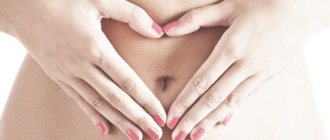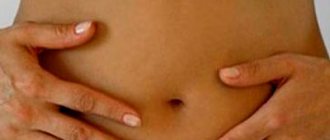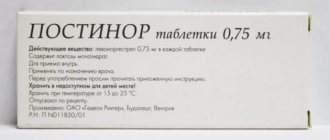Hello my dears! Tell me, how often do you “walk” around your apartment without a bra, letting your breasts breathe freely and calmly? We bet: not often, but constantly wearing tight bras provokes a lot of diseases of the mammary glands. So quickly change your clothes and come back.
Sometimes each of us feels a burning sensation in the mammary gland, the causes of which can be both harmless and quite dangerous to our health. From discomfort to an impressive size of the cyst, for example, it will take several months, but for treatment you will need much more strength, nerves and time. Therefore, do not tolerate the burning sensation under any circumstances, and see a doctor, gynecologist or mammologist as soon as possible.
Ignoring chest discomfort means voluntarily going to oncology. Before it's too late, read this publication to avoid dangers.
Hormones and cycle decide everything
A woman’s health largely depends on a normal, regular menstrual cycle and hormone levels, because our body is designed to bear and feed a baby. Our breasts, their shape and well-being are also cyclical: they either fill up and become heavier, sometimes they seem to “deflate”, sometimes they make themselves felt with pulling sensations. All these are variants of the norm, unless, of course, the pain is sharp and too strong.
80% of women periodically experience a burning sensation in the mammary glands, and approximately 60% “heroically” endure it. But we should not endure it, but run to the doctor.
I’ll try to summarize all the possible reasons why your chest may be “burning.”
What to do when your chest burns and hurts
With any hormonal surge in the female body, the breasts react first and begin to ache.
Timely medical care will prevent symptoms from developing into a serious illness. Under what circumstances does pain in the glands worsen:
- with hormonal changes during menstruation;
- with hormone replacement therapy with estrogen in the postmenopausal period;
- for mastopathy;
- in case of injury or infection;
- when breastfeeding;
- for cancer;
- in pregnant women with natural hormonal changes;
- with cracked nipples, during breastfeeding;
- in girls, during puberty;
- with late first birth or absence of birth;
- with a lack of physical activity.
Pain and burning in the chest is a common problem among women of all ages. Basically, the cause of burning is a benign dyshormonal disease.
This is mastopathy, with neoplasms, resulting from the proliferation of cells in the tissue structures of the organ.
Sometimes women experience that their breast area is burning. Naturally, many people wonder why this happens? There can be a lot of answers to this, and in this regard, mammologists offer a classification into dangerous and less critical physiological factors. More on what they are below.
About the reasons in general
Indeed, breasts can burn due to a variety of reasons, non-hazardous ones including pregnancy, the onset of the menstrual cycle and breastfeeding. Speaking about the dangerous factors that cause the mammary gland to also hurt, it is necessary to note mastopathy, mastitis, the presence of other lumps and cancer.
Of course, this is not a complete list, because the mammary gland can burn due to, for example, a minor allergic reaction. It, in turn, can be triggered by the consumption of certain foods, the use of chemicals and household products, as well as other factors.
Non-hazardous reasons
So, non-hazardous development factors include pregnancy, the menstrual cycle and breastfeeding. If during pregnancy such sensations in the mammary gland can be treated quite calmly, then during the menstrual cycle and lactation this should cause some concern. About chest pain in men.
Speaking about pregnancy, it is necessary to pay attention to the fact that the breasts undergo certain changes, in particular they:
- itself increases in size;
- the milk ducts change, which are fully prepared for breastfeeding;
- Some swelling occurs because the woman’s weight category changes upward.
That is why the feeling of a slight burning sensation in the chest during pregnancy can be considered quite normal.
However, it is recommended to pay attention to how often the sensations are repeated and whether they are intense. If the answer is positive in both cases, this should be considered a negative sign, and therefore it is necessary to contact a mammologist. About punctures of cysts and other neoplasms here.
If there are specific sensations in the mammary gland during the menstrual cycle or as part of breastfeeding, it must be taken into account that the cause is most likely a hormonal imbalance. In the vast majority of cases, it provokes a certain deterioration of the general condition and weakening of the body, which is why the mammary gland begins to burn.
By the way, similar symptoms are very often identified during menopause - in each of the presented cases it is strongly recommended to consult a mammologist. Even if a woman does not have any dangerous diseases, diagnosis will allow her to be convinced of this, as well as the cause of chest pain during menopause.
Dangerous reasons
The list of potentially dangerous factors is much more extensive. As noted earlier, it includes mastopathy, mastitis, the presence of any seals and malignant neoplasms, including oncology. Speaking about mastopathy and mastitis, it should be noted that they are associated with the formation of painful compactions in the tissues of the mammary gland, as well as simply with a change in the degree of their density. In this regard, active processes occur in the chest, which provoke a burning sensation, as well as pain.
In the vast majority of cases, mastopathy and mastitis (forming in pregnant women) are one-sided pathological conditions.
However, with significant endocrine disorders, the process may turn out to be bilateral, and therefore, in order to avoid this, it is strongly recommended to make an appointment with a mammologist.
A variety of neoplasms can provoke the sensation of burning or itching in the left breast. We are talking about cysts, lipomas, adenomas and many others, which in 90% of cases are benign and are quite easily identified during self-examination. That is why you should not neglect palpation, which is preferably carried out once a month after menstruation ends.
In a situation where a woman suspects that the mammary gland is burning and hurting due to cancer or a related condition, it should be taken into account that:
- any attempts at self-treatment or the use of traditional methods can cause significant harm to the body;
- if a malignant neoplasm was detected in the initial stage of development, it can be easily treated and the likelihood of relapses is excluded;
- turning to a mammologist for ultrasound and mammography is the only right decision.
As a rule, burning and pain in the chest do not develop spontaneously, but gradually, that is, gradually progressing. However, a woman may not pay attention to the symptoms presented for some time - this approach to this issue is completely wrong. In addition, such diseases, especially mastopathy and mastitis, develop in so-called risk groups, and therefore a female representative may well suspect the onset of such conditions. Taking all this into account, I would like to draw attention to the need for diagnostics and a rehabilitation course. More about diaper rash later.
Before menstruation for pain or prescribing treatment, an obligatory step is to examine the condition of the breasts and what processes are occurring. This can be determined by ultrasound, mammography, ductography, radiothermometry, as well as CT, MRI and other techniques. If the results obtained seem doubtful, there is a need to re-examine the body.
After this, treatment is prescribed, which can be very different, depending on the identified disease. We can talk about hormonal therapy, the use of any other medications that make it possible to improve the general condition of the mammary gland (including symptomatic ones, get rid of burning).
In the most problematic situations, the use of surgical intervention is indicated, which consists of removing the breast tumor.
After such an operation, it is necessary to carry out some rehabilitation measures in order for the woman’s health to fully recover and improve. It is recommended to undergo rehabilitation in a hospital setting to ensure compliance with all medical recommendations. How to cope with lymphostasis or prevent it?
When a woman’s chest burns, this should be an alarming sign and a deviation from the norm. Considering this, it is recommended to contact a mammologist as soon as possible for a diagnostic examination and a rehabilitation course. Only in this case is there a chance of maintaining 100% vital functions and activity.
Important!
BREAST CANCER IS APPEARING MORE AND MORE FREQUENTLY IN WOMEN! TAKE THE TEST AND FIND OUT IF IT IS A THREAT FOR YOU!
0 out of 11 tasks completed
It's completely free and will only take YOU a couple of minutes!
You have already taken the test before. You can't start it again.
You must log in or register in order to begin the test.
Time is over
- Do not forget to periodically see a mammologist! These visits will help YOU prevent the risk of cancer!
Determining your risk of breast cancer
This test retains the reliability of calculations for a Caucasian woman, without identified hereditary genes for breast cancer, without a previously established diagnosis of this disease, and subject to an annual examination by a mammologist.
Test result
The risk of developing breast cancer over 10, 20 and 30 years is -0.1%, 1.1%, 3.2% respectively.
The probability of not getting sick within 10, 20 and 30 years is 100.1%, 98.9%, 96.8% respectively.
This test is not entirely suitable for girls under 20 years of age and women over 50 years of age (there may be slight errors). We advise you to read the materials we have prepared about the structure of the breast, risk factors for breast cancer and breast self-examination skills that every adult woman should know.
Causes of burning in the mammary gland
1) Menstruation. A slight burning sensation and breast enlargement before menstruation are normal. These are the tricks of the increased amount of estrogen, the female hormone. However, almost all other reasons also involve hormones in one way or another. Here I would like to note that if discomfort and even pain persist after menstruation, be on your guard.
2) Pregnancy. But if you haven’t gotten your period this month, and your breasts are growing by leaps and bounds and you feel a burning sensation, congratulations, you may be pregnant. It is the increase and some discomfort that are the first “bells” of successful conception. The gland is preparing for lactation, the tissue grows, and so a kind of “burning” distension appears.
3) Breastfeeding. Inexperienced mothers who do not yet know how to properly attach their baby to the breast often experience such a nuisance as lactostasis (milk stagnation). In order for all the milk to be in demand by the baby, you need to feed on demand, and not by the hour, as our grandmothers bequeathed. Don’t be lazy to get up at night, and then you won’t be at risk of lumps in the mammary gland while breastfeeding, which can cause a lot of trouble, including burning and fever.
4) Mastopathy. When it really burns, it’s with mastopathy. It can develop both due to hormonal imbalance and due to ordinary stress. A burning, aching pain appears shortly before menstruation and “spills” from the chest into the armpit area. At the same time, enlarged lymph nodes are felt in the armpits, and dense balls are felt in the chest itself. There may be redness of the tissues, discharge of purulent fluid from the nipples, and severe fever. Scary? I’ll tell you more - it’s also dangerous! This pathology has deprived more than one woman of her breasts, because mastopathy is a common cause of cancer. Watch out, dear ladies!
5) In menopause, while the hormones have not yet subsided, nagging pain and burning are also possible. This is the norm, but visit your gynecologist periodically to monitor the situation. A lump in the chest, like a harmless fibroadenoma or cyst, is of no use to you. These tumors must be removed and analyzed for the presence of malignant cells.
6) Injuries. We will not take serious cases, for example, accidents, when the chest can be seriously injured. Even a harmless fall from a bicycle or your own height while skating can cause extreme stress to your airbags. Breast tissue is very delicate and sensitive and any impact can disrupt its normal functioning. The chest begins to “bake” and ache.
7) Disease of the organs (endocrine system, gastrointestinal tract, heart) When the heart muscle experiences a spasm, you may feel as if someone is squeezing your chest.
 Stress. Being nervous is harmful not only because of poor sleep and skin color; your breasts also experience enormous changes during the period of your nervous turmoil. Remember the phrase “All illnesses come from nerves” and...calm, only calm!
Stress. Being nervous is harmful not only because of poor sleep and skin color; your breasts also experience enormous changes during the period of your nervous turmoil. Remember the phrase “All illnesses come from nerves” and...calm, only calm!
9) Poor hygiene. Try to change your underwear more often, choose bras only from natural fabrics. Test soap or shower gel, as well as new-fangled deodorants, for an allergic reaction first. Apply a small amount to the inside of your elbow and wait a few minutes. There is no redness or burning - feel free to use it. If spots and itching appear, remove these hygiene products away. Otherwise, your breasts may take revenge on you.
The most common reasons why breasts itch
The condition of itchy breasts is familiar firsthand to many people, especially women, and the reasons for this unpleasant phenomenon are varied. In whatever part of the body itching occurs, it is a definite signal of some problems or changes in the body that need to be paid attention to.
When the nerve endings are affected by any irritating factor, the body “demands” its elimination, so it is very important to find the true cause of itching and burning. The mammary glands in women are a special organ that is intended for feeding offspring, and during life it undergoes certain changes. The breasts are very sensitive, and any disruptions in the body instantly affect its condition.
Allergies are a common cause of itching
An allergic reaction may cause itching and rashes to appear on the skin of the chest.
Allergies can be triggered by:
- synthetic fabrics for a bra, blouse or dress;
- washing powders, rinse aids;
- metal jewelry that a woman wears around her neck;
- hygienic and cosmetic body care products (shower gel, body lotion), perfumes;
- medications;
- food products;
- insect bites;
- Sun rays;
- chlorinated water.
A woman is especially vulnerable during pregnancy, when hormonal changes occur, and this affects both the body’s susceptibility to external factors and the condition of the mammary glands. Nervous stress and overexertion can also cause allergies.
Not only itching indicates an allergic reaction.
After direct contact with the allergen, symptoms appear fairly quickly, but sometimes symptoms can manifest themselves after a few days:
- The skin turns red, spots, and swells.
- Rashes appear in the form of papules, vesicles, blisters of various sizes.
- The rash can be weeping or dry.
- The skin dries out and peels.
These phenomena cause significant discomfort, and the situation can be aggravated by profuse sweating and high ambient temperatures in the summer. Due to allergies, itching in the chest area can be observed in both women and men.
It is important to remember that you should not scratch itchy areas, as this may lead to a secondary infection. In case of allergies, you need to consult an allergist who will help you choose remedies to relieve itching and swelling, remove allergens from the body, and also find the cause of the negative reaction.
Skin diseases
Skin diseases - eczema, dermatitis, psoriasis, mycosis, candidiasis, herpes and others may not be associated with allergies.
These diseases are often the result of internal problems in the body (diseases of the liver and intestines, blood, endocrine glands), as well as stress and depression:
- Psoriasis is a serious skin disease. Red papules covered with scales appear on the skin. These formations itch and itch. In this case, symptoms of general deterioration in health are observed: weakness. depression.
- Fungal diseases provoke severe itching and burning of the skin, especially under the breasts. Excess weight and poor personal hygiene contribute to the proliferation of pathogenic microflora in the moist and warm environment of skin folds.
- Feelings of discomfort in the chest area can occur due to viral, bacterial and parasitic skin infections. When infected with the herpes virus, the rashes are accompanied by severe burning and itching, and the opened ulcers burn and itch very much during the healing process.
- Exposure to ultraviolet radiation on the delicate skin of the breast when visiting a solarium or abuse of top-less sunbathing. The skin on the chest dries out, cracks, and peels off. In this case, severe itching is felt.
As a rule, skin diseases are characterized by the presence of rashes and other visible changes in the epidermis and dermis.
Men are also susceptible to skin and fungal diseases, which are accompanied by itching and burning sensation on the skin in the chest area.
Breast diseases
Unpleasant sensations in the chest in women can occur due to inflammatory processes.
- Mastitis is an inflammatory disease of the mammary glands, which occurs due to stagnation of milk and the formation of cracks during breastfeeding. Coccus bacteria penetrate through the lymphatic and mammary ducts into the gland, causing its inflammation. The main symptoms are: swelling and hardening of the mammary gland, with severe pain, a burning sensation in the mammary gland, hardening forms under the skin, and body temperature rises.
- Paget's cancer is characterized by damage to the nipple and peripapillary area. Symptoms of the disease include changes in shape (the nipple is “retracted”), burning and itching in the nipple area, and discharge from the nipple. At the initial stage of the disease, a red rash may appear that is very hot and itchy.
- Edematous-infiltrative breast cancer. A tumor forms in the tissues, the skin around it turns red and swells, and the local body temperature in the area of the lump rises. The process is accompanied by severe itching. There is discharge from the nipple, the skin of the breast takes on the appearance of an “orange peel” (covered with small indentations).
- Injury to the nipple during feeding can lead to infection. In the case of thrush in the child's mouth, candidiasis may occur in the mother's nipples. This may also explain why your chest itches.
- Inflammation of the Montgomery tubercles on the nipples as a result of infection or hormonal imbalance can cause itching in the area of the nipple and areola.
In men, discomfort, pain and itching in the mammary glands occurs due to the following pathological changes in the body:
- gynecomastopathy - enlargement of glands and hypertrophy of adipose tissue;
- thrombophlebitis of the chest and mammary glands;
- breast cancer
The answer to the question: why does the chest itch can only be given by a doctor. You should not ignore the body’s signals, as delaying help can lead to serious consequences.
Hormonal changes in the body are the cause of itching in the chest
Throughout life, a woman’s body changes. First, it prepares for conception, bearing and feeding a child, and then these functions fade away. The ratio of different types of hormones in the body changes.
The chest undergoes significant changes:
- Discomfort in the form of burning, itching and pain is felt by teenage girls during puberty and breast growth.
- Preparing for the birth of a child. Two weeks after conception, the breasts “swell”, hurt and itch. Before the birth of the baby, a woman observes the discharge of colostrum from the nipples, which indicates an imminent birth. The ducts of the mammary glands expand, glandular tissues increase in volume under the influence of the hormone oxytocin. During this period, the breasts become very itchy and its sensitivity increases.
- Premenstrual syndrome is also characterized by symptoms such as itchy breasts. This is due to an increase in the level of the hormone progesterone during ovulation.
- The onset of menopause. Glandular tissue gradually degenerates into fibrous and fatty tissue. The amount of estrogen in the body decreases, the skin becomes dry, and the changes are accompanied by unpleasant sensations.
These conditions are natural and, as a rule, should not cause alarm. However, any woman should undergo regular screening and mammograms. Women over 40 years old need to undergo examination every six months. You can relieve discomfort with pharmaceutical lotions or cold compresses.
Do not forget that underwear must be of high quality and fit to size.
Tight underwear can cause tissue compression and injury, which also leads to discomfort. For a nursing mother, properly selected underwear is the key to her own health and the health of her baby.
Internal pathologies in the body
Internal problems in the body can affect the condition of the breast.
The chest may itch and hurt if the body has:
- thyroid diseases;
- diabetes;
- nervous stress;
- blood diseases.
The mammary glands can also ache and itch during colds and viral diseases.
In addition, many hormonal and other medications can cause itching in the mammary gland, so only a doctor should select medications.
How to eliminate and prevent itchy breasts
The causes of itching and burning in the chest can be very diverse, and if the alarming symptoms are not associated with improperly selected underwear or poor personal hygiene, it is necessary to consult a doctor.
As first aid, you can use the following means:
- cooling compresses;
- aloe juice or gel;
- pharmacy lotions and creams that relieve itching;
During this period, you must follow some simple rules:
- try to avoid sunlight;
- do not use cosmetics and hygiene products with fragrances;
- for body hygiene, use purified bottled water instead of chlorinated tap water;
- do not wash with very hot or cold water;
- try not to rub the skin with a washcloth and towel;
- ensure that the skin under the breasts is always dry;
- under no circumstances should you scratch your skin;
- clothing should be made of soft and breathable fabrics.
It is very important to pay attention to the quality of underwear. Leather needs to breathe, so synthetics are not a suitable option. Clothes and underwear should not restrict or squeeze the body, nor should they have hard lacing or other decorative elements that rub the skin. The underwear must be true to size - not tight. At night, the bra should be removed to allow the body to rest.
It is very important to monitor the condition of the skin. It is necessary to properly cleanse and moisturize the delicate skin of the breast.
Cosmetics must be hypoallergenic. It is believed that rich creams are better suited for dry and flaky skin than lotions and balms.
Another important factor influencing the condition of the whole organism is balanced nutrition and daily routine. A balanced diet and a reasonable diet are always included in any comprehensive therapeutic program.
allergolog1.ru
Mammologist, appointment
So, if you notice that a burning sensation has appeared in your chest, and it is not cyclical (that is, not associated with menstruation), be sure to make an appointment with a gynecologist and mammologist. The doctor will examine you, palpate the glands, take blood for biochemistry if necessary, and do an ultrasound and MRI. However, at home you yourself can periodically carefully feel your breasts for lumps and armpits in order to find out in time that the lymph nodes have enlarged.
Treatment is usually quite tolerable. The doctor will prescribe you hormones to restore their balance, vitamins, sedatives, and advise you to adhere to a special diet. For some time you will have to give up your favorite coffee and chocolate, as well as soda and alcohol.
If the burning sensation is caused by pathological changes and disorders, surgical intervention is also possible. Don't be afraid of anything, trust the doctor, otherwise your breasts may suffer even more.
Diagnostics
To diagnose mastopathy and cancer, a blood test is first taken for the three main female hormones - progesterone, estrogen and prolactin. An imbalance in their synthesis indicates that some actions on the part of the woman caused changes in the breast tissue. In this case, hormonal drugs are prescribed that eliminate the imbalance, as a result of which the tumors disappear.
Sometimes it is necessary to do an ultrasound of the liver and gallbladder to make sure they are working properly. Estrogen, entering the liver, is destroyed under the influence of liver enzymes. If the organ is not working well, the hormone continues to circulate in the blood and have an adverse effect on tissues that are particularly sensitive to it.
MRI of the mammary glands
Mastitis of an infectious nature is diagnosed quite easily. Usually, a survey of the woman is enough, where it turns out that before the infection there was congestion in the chest, then the temperature rose, and the chest turned red, hurt and burned so much that it was impossible to touch. If a purulent abscess is suspected, a puncture is performed and the issue of surgery is decided.
Diagnosis is one of the important stages in understanding the cause of pain in the chest and subsequent treatment. The doctor will be able to make an accurate diagnosis and prescribe treatment only after examination. To see the exact picture of the disease, it is necessary to resort to ultrasound, MRI, CT.
- Ultrasound. Ultrasound diagnostics evaluates the blood flow of the gland, determines the structure of the organ, and identifies compactions and neoplasms. Typically, such an examination is recommended for women with a predisposition to cancer, for pregnant women and other patients for whom X-rays (mammography) are prohibited.
- MRI An effective research method is magnetic resonance imaging. MRI is prescribed additionally, after ultrasound and mammography. MRI is safe for health, since the body is not exposed to x-rays. Such an examination reflects all formations and deviations from the normal state of the glands.
- Kt. Digital mammographs have a low level of radiation and provide highly informative images. It provides examinations with double projection magnification. The only drawback of CT mammography is the high radiation exposure and therefore, such a study is not used without compelling reasons.
Burning sensation in the chest when walking: causes, treatment
Burning sensation in the chest when inhaling
If you feel a burning sensation with every breath, then you can most likely say that you have problems with the respiratory system. Sometimes this symptom appears against the background of influenza or a viral infection. The appearance of such a manifestation provokes an inflammatory process occurring in the respiratory tract. In this case, all unpleasant sensations may intensify against the background of high temperature.
Bronchitis can also trigger a burning sensation in the chest. This disease, in addition to discomfort in the chest area, will also manifest itself as a cough, and the stronger it is, the more noticeable the burning sensation will be. This will be due to the fact that during coughing and expulsion of sputum, the bronchi will be overstrained and injured, and as a result the patient will feel a burning sensation.
These diseases are treated very simply. Most often, the patient is prescribed vitamin complexes, antibiotics and expectorants. As practice shows, with adequate treatment, after 10 days a person forgets about his problem.
Burning sensation in the chest when walking
A burning sensation in the chest when walking directly indicates that a person has serious problems with the musculoskeletal system. As a rule, osteochondrosis and intercostal neuralgia manifest themselves in this way. In this case, discomfort can be felt both when moving and in a calm state.
As for the treatment of these pathologies, it will be identical for both diseases. Patients are required to be prescribed medications that will relieve pain. Depending on the severity of the disease, a person will be given a novocaine blockade up to three times a day. You can also try to alleviate your condition with ointments with analgesic and anti-inflammatory effects.
But remember, these drugs can relieve discomfort only for a certain time. If you want to get a more lasting result, then you will have to undergo physiotherapy and special massages. If you want to forget about this problem once and for all, then don’t be lazy and undergo treatment with massages and physical exercise a couple of times a year.
Burning sensation in the chest during pregnancy
Most often, the cause of a burning sensation in the chest during pregnancy is the processes occurring in the body of the expectant mother. For example, in this way the body can react to changes in hormonal levels. In addition, similar problems may appear during the preparation of the mammary glands for lactation. During this time period, discharge from the nipples may also begin and their sensitivity will greatly increase.
If you have a similar problem in the second or third trimester, then this indicates that your spine cannot withstand the load. In this case, it is best not to ignore the discomfort, but to try to get rid of it. Since pregnant women and girls should not get carried away with taking medications, try helping yourself with a course of light massage or sign up for gymnastics for pregnant women.
When to worry about pathology with a burning sensation in the chest
Discomfort after a meal is normal, especially when the menu was dominated by unhealthy foods. Proper nutrition is a guarantee that a person will not experience such sensations. If a burning sensation in the chest area is repeated frequently or occurs for no apparent reason, then a serious pathology should be suspected.
Neuroses and depression can also provoke discomfort. In this case, it is necessary to choose the right therapy. Sedatives should only be prescribed by therapists. Self-medication for nervous disorders can only cause harm.
When coughing, a burning sensation in the chest should alert any sane person. This may be a symptom of a respiratory tract disease; some ailments can only be cured with the use of antibiotics and hospital therapy. If it bakes in the sternum, then you need to consult a specialist. But before that, you should understand the reasons that provoke this condition.











